Mon to Fri: 09:00 am to 07:00 pm

Mon to Fri: 09:00 am to 07:00 pm

Windows are an essential part of any building, as they let in natural light and fresh air. They also add to the overall aesthetic appeal of a room. However, windows can also allow unwanted outside noise to enter your home or office.
This can be particularly bothersome if you live in a busy city, near a construction site, or highway. Fortunately, there are ways to soundproof your windows and reduce the amount of outside noise that enters your space.
In this guide, we will discuss some effective methods for soundproofing windows.

Soundproof curtains are an easy and cost-effective way to reduce outside noise from entering through your windows. These special curtains are made with thick materials that absorb sounds, making them an effective barrier against noise. Some soundproof curtains also have a reflective layer that can help to block out high-frequency sounds.
Pros of installing soundproof curtains:
Cons of installing soundproof curtains:
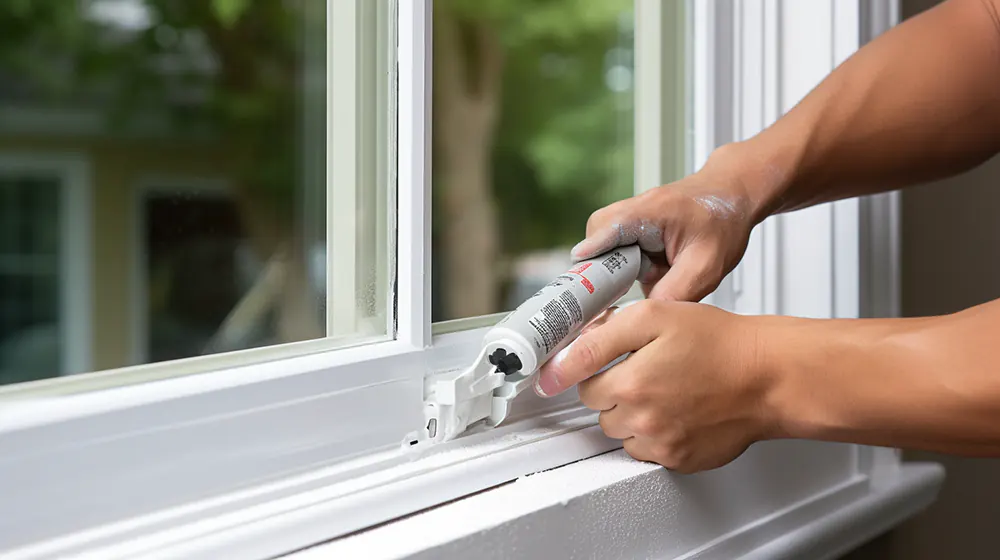
Gaps and cracks around your windows can be a major contributor to outside noise entering your space. To seal these gaps, you can use weatherstripping or caulking to fill in any spaces. This will not only help with soundproofing but can also prevent drafts. Additionally, considering replacement windows can be a long-term solution for addressing these issues.
Pros:
Cons:
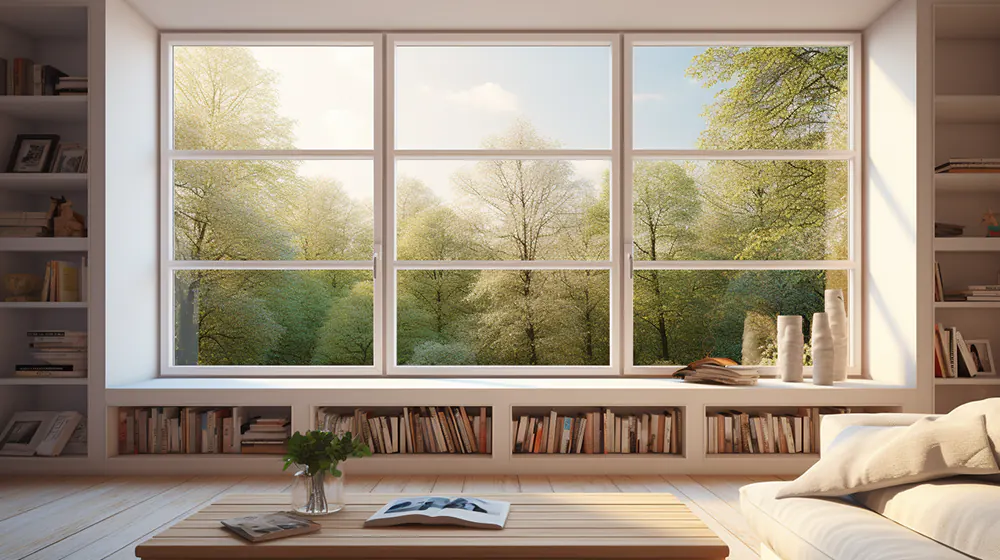
Acoustic glazing, also known as soundproof glass, is a specialized type of glass designed to reduce noise levels. It works by incorporating multiple layers of glass, creating an air pocket that acts as a barrier against sound waves. This not only effectively reduces noise levels but also improves the insulation of your windows. Acoustic glazing has a higher cost compared to regular glass but offers significant benefits. Having acoustic glazing you may save money in the long run due to the quality of insulation your home will have an easier time keeping an average temperature.
Pros:
Cons:
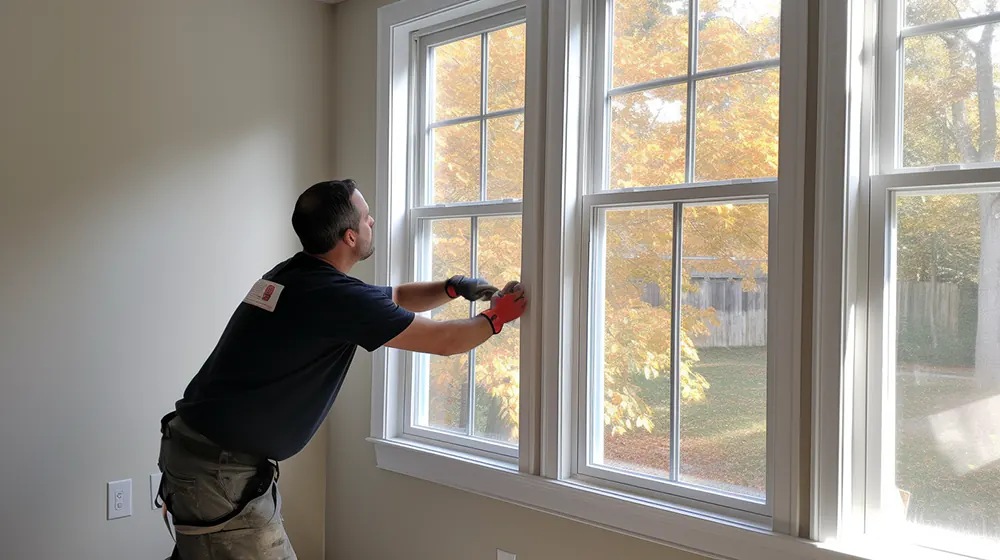
Window inserts are essentially an additional layer of glass that can be installed on the inside or outside of your existing windows. They offer similar benefits as acoustic glazing but at a lower cost and quality. Some window inserts are made with acrylic or polycarbonate materials, which are strong and impact-resistant.
Pros:
Cons:
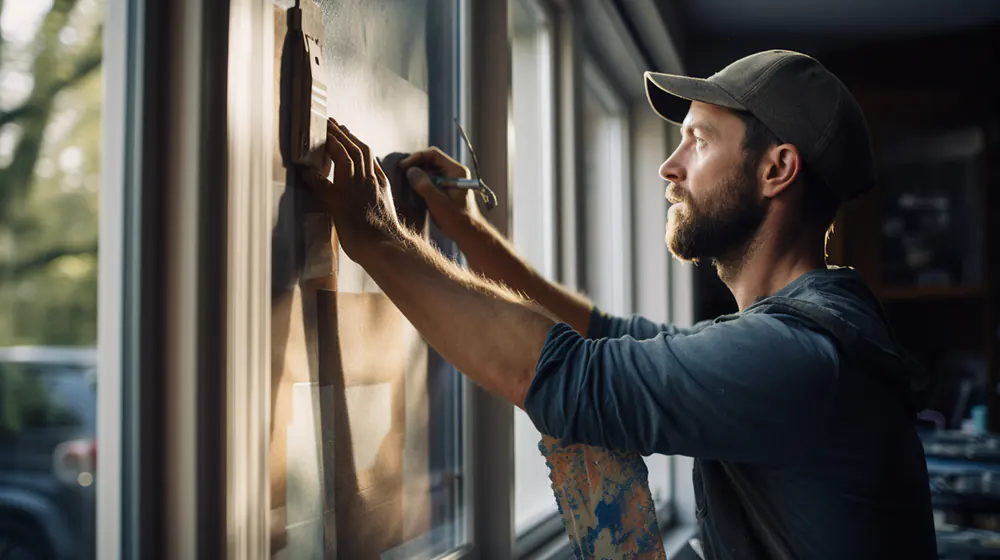
Similar to window inserts, soundproof window film is another cost-effective way to reduce outside noise. This thin layer of film can be applied directly onto your existing windows and works by absorbing sound waves. It also has the added benefit of blocking out harmful UV rays.
Pros:
Cons:
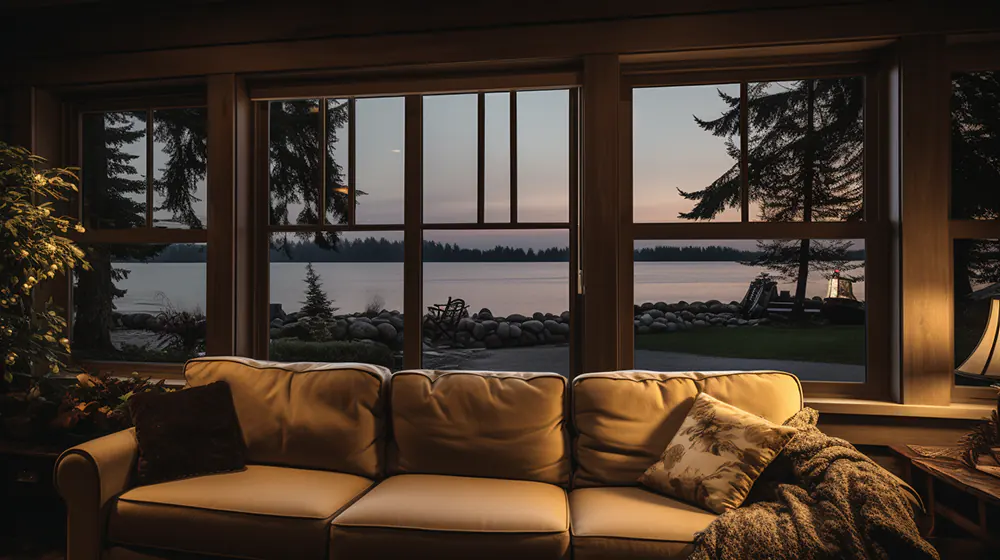
Triple-pane glass or a dual-pane window with an air space are better noise-reducing windows than a single-pane window. They can also help to reduce outside noise. These types of windows have multiple layers of glass with an air pocket in between, which helps to insulate against sound waves and temperature. While triple-pane windows are more effective than dual-pane ones, they also come at a higher cost but significant reduce your power bill when it comes to heating or cooling your home.
Pros:
Cons:
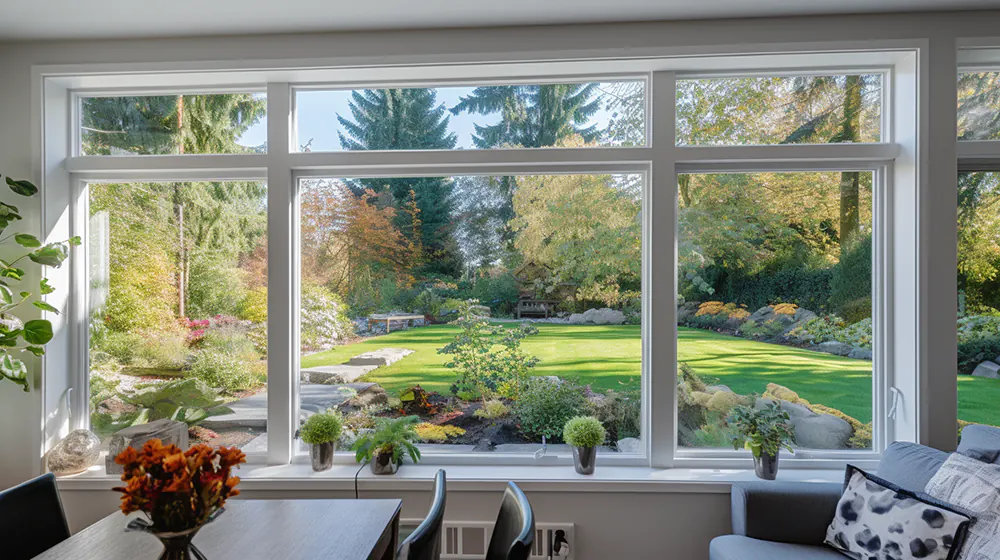
Here are some key factors to keep in mind:
The amount of noise reduction provided by soundproof windows can vary depending on several factors. These include the type of window, the thickness of the glass, and the installation method used.
On average, noise reduction windows can deaden sound and reduce outside noise levels by an impressive range of 50-95%. This significant noise reduction can greatly enhance the tranquility and comfort of your living or working space.
Yes, many soundproofing methods can be easily installed by homeowners or renters. For example, you can install acoustic foam panels on the walls or ceiling to absorb sound waves. Additionally, you can use weatherstripping or door sweeps to seal gaps and prevent sound leakage. These DIY methods are effective and relatively simple to implement.
However, for more complex soundproofing techniques like acoustic glazing, it is recommended to hire a professional. Acoustic glazing involves the installation of specialized soundproof windows, which require expertise to ensure proper sealing and optimal noise reduction. Hiring a professional will ensure that the installation is done correctly and maximizes the soundproofing and insulation benefits for your space.
Yes, soundproof windows and sliding glass doors can work in both directions, reducing outside noise from entering and reducing noise from inside your home or office to the outside. This dual functionality makes them an excellent choice for creating a peaceful and quiet environment. Additionally, they also provide insulation, helping to regulate temperature and save energy. With their ability to enhance both acoustic performance and energy efficiency, soundproof windows, and sliding glass doors are a valuable investment for any space.
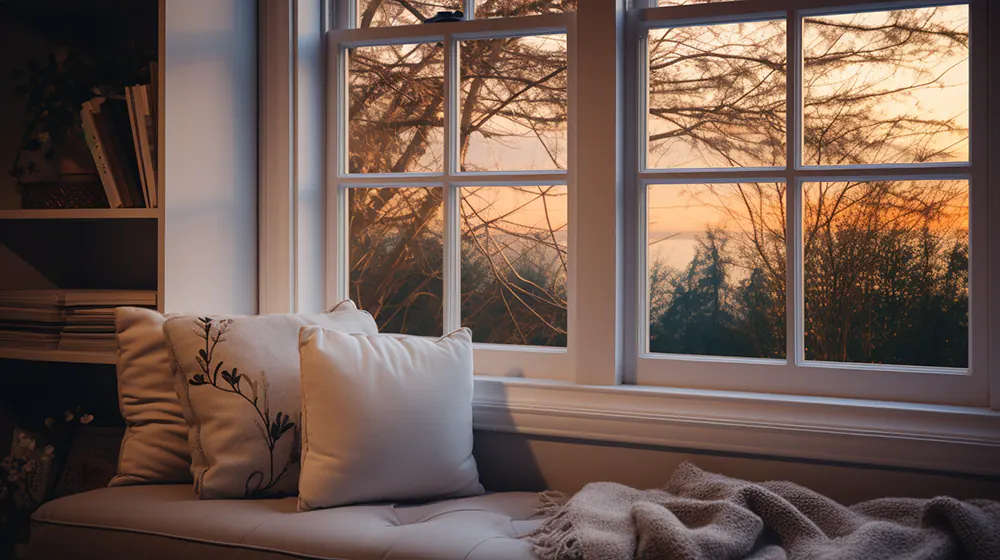
Sound-reducing windows are an effective solution to reduce outside noise and create a peaceful indoor environment. They come in various types and offer different levels of sound reduction, making it important to consider your specific needs when choosing the right type for your space.
Whether you opt for DIY methods or professional installation, soundproofing your windows can greatly improve the sound performance and quality of life in your home or office. So, next time you are looking for a quieter and more comfortable space, consider investing in soundproof windows as a long-term solution.
Overall, the combination of different soundproofing techniques can provide maximum benefits and help you create a tranquil oasis away from the hustle and bustle of outside noise. So go ahead and explore your window options to find the right soundproofing solution for your unique space. Your ears (and peace of mind) will thank you!
Get a free siding or windows estimate today by simply filling out this form.
Our team members


